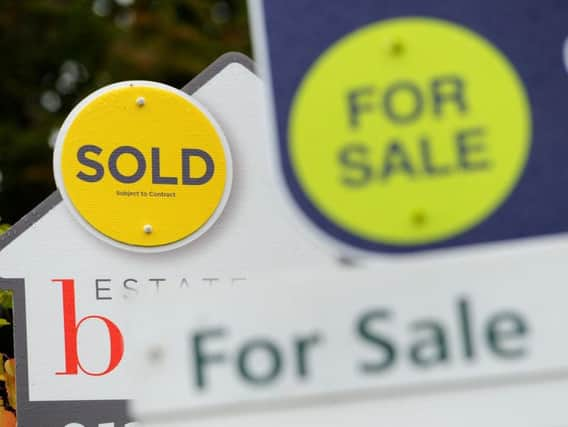Why the property market would probably take a hit from a disorderly Brexit


In the event of a disorderly Brexit, average prices could slip about 3 per cent nationally in the ensuing six months and as much as 10 per cent in London, a poll of housing experts found.Roughly 85 per cent of respondents said both UK and London house prices would fall in the six months subsequent to leaving the European Union without an agreement.But if Britain departs the EU with a transition deal - the scheduled leave date is October 31 - house prices are due a mild 1.5 per cent lift over the following two quarters. They would rise 1.4 per cent in the capital.Results from the survey show an otherwise tepid outlook for national price rises in coming years, at rates not far off an already-mild consumer price inflation rate and despite the recent sharp fall in sterling.Indeed, the results suggest that foreign demand for property will be weaker than in previous years where declines in the pound have spurred buying, particularly in London, as it makes housing cheaper for those holding stronger currencies.“Despite the new PM and team in government there are big icebergs ahead, not least the apparent willingness to leave the EU without a deal,” said property market consultant Henry Pryor. “This is likely to spook the markets before it reassures them.”At the same time, there are fundamentals cushioning the market from falls. Hansen Lu, analyst at consultancy Capital Economics, notes the ongoing shortage of homes, which nearly always underpins British house prices.Mortgage rates are also very low and not set to rise any time soon despite hawkish rhetoric in past months from Bank of England policymakers, and recent wage gains have lifted household spending power somewhat.“Both factors are helping to prevent the current slump in house price growth from developing into an outright fall in prices. Yet on the other hand, Brexit uncertainty, as well as the high level of house prices relative to incomes, continues to weigh on buyer demand,” said Mr Lu.Others, like Tony Williams of Building Value, are more sanguine about the overall housing market’s prospects following Britain’s impending departure from the EU, no matter how rough.“With no-deal, there will be a knee jerk action in which demand will fall followed by prices over the first six months of the UK’s new status,” notes Williams. “That said, life after a no-deal Brexit will revert to type.”
A recent study showed that house prices in Yorkshire have increased by £12 per day on average since the start of the year.Prices in the region rose an average of £2,263 in the first half of this year, according to analysis by Zoopla.In January, the average house price in Yorkshire was £181,918 but, by July, this had increased to £184,181, defying economic predictions over the prospect of leaving the EU.According to the statistics Yorkshire house prices are performing well compared to other areas. Yorkshire as a whole did well but prices varied across the county.The best performing area was Harrogate, where prices rose £46.22 a day, followed by Keighley (£37.10) and Dewsbury (£35.39). Prices fell in some areas Halifax saw the biggest drop, down £24.82 a day, followed by Barnsley (£19.69) and York (£5.84).